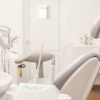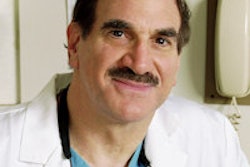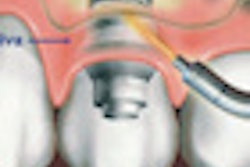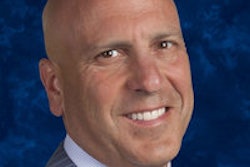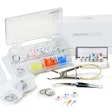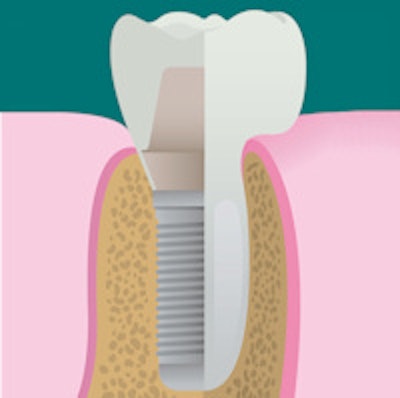
SAN FRANCISCO - More than 400 dental professionals filled a large auditorium at the Westin St. Francis hotel today for a continuing education (CE) course on implant complication management hosted by Straumann.
The event was a follow-on to a similar CE course Straumann held last year.
Throughout the day, the conversation among practitioners often returned to the fact that, when it comes to implants, one learns more from mistakes than successes, and that the opportunity to learn about others' mistakes compelled them to attend.
During the morning question-and-answer session, audience members used every moment available to gain insight from the expert panel, which comprised Ronald Jung, DMD, PhD; Stuart Froum, DDS, director of clinical research of the clinical professional department of periodontology and implant dentistry at the New York University College of Dentistry; and Paul S. Rosen, DMD, a clinical associate professor of periodontics at the University of Maryland School of Dentistry.
One clinician had concerns about financial responsibility with patients that disregard their follow-up appointments and the recommended implant maintenance and care regimen. "How responsible am I for patients that don't come back?" he asked.
"I have a defined rule," Dr. Rosen said. "If you don't come back to see the final restoration after it's placed, there's no warranty. When a person buys a car, they put gas and oil in it, wash it, and take it in for scheduled maintenance. But with teeth, they may do nothing but expect them to last a lifetime."
He then turned his attention to the "triangular" partnership among the surgeon, dentist, and patient in implant therapy. "We push that. We can all work together for the greater good. If people don't want to work with me, there's nothing I can do," Dr. Rosen said.
The disparity in insurance coverage between medicine and dentistry also complicates the situation for implant therapists.
"Medicine is a different animal because insurance covers everything," Dr. Rosen explained. "For us, a lot is discretionary. So 'buyer beware.' "
Dr. Froum had specific advice for implant therapists about how to protect themselves.
"Years ago we didn't know anything about peri-implantitis, so we didn't warn patients," he explained. "But now, as part of my consent form, we write down their responsibility to maintain their mouths and come in for maintenance. Be careful what you tell patients, and include this in the consent form."
Immediate placement preferred?
Another member of the audience asked for the panel's opinion about immediately placing implants after extraction.
"Pre-op assessment is key," Dr. Jung stated. "When there are doubts, choose a delayed procedure confidently. If the situation is ideal, immediate is fine, but if there are doubts, maybe wait six to eight weeks, do grafts, soft-tissue adjustments, etc., and then proceed."
Dr. Rosen considers immediate-after-extraction placement the best option.
"I'm a big immediate placer," he said. "The environment is ideal, and it's the best time to act. Cleaning up the root, you're going for one miracle at a time," meaning you're counting on a series of successful procedures. "If you know what you're doing -- and experience matters -- I'm big on immediates."
"A more demanding procedure," Dr. Jung said.
"No question," Dr. Rosen agreed. "So if you're not comfortable with it, delaying the procedure is fine."
Next, a doctor from San Francisco asked if the panel routinely probes the implant patient without fear of damaging the implant junction.
"I always probe; there's no reason not to," Dr. Froum stated. "It's been shown in a number of studies that if you use a rounded, metal probe, you will not damage the surface. So I don't hesitate. If you do, there is no way to ascertain if you have inflammation, and bleeding on probing is a good way to know that."
A question of whether or not to treat smokers and how to manage the increased risk of implant failure also was raised by the audience.
"Overall, success is lower for smokers, and it's the same whether they quit a few weeks before or after [the procedure]," Dr. Froum said. "It's hard to ascertain what the success rate is among them, but I try to get them to quit for their health and heart."
However, he does not turn them away. "If I didn't treat smokers, I'd lose half of my practice. In California, if you don't treat marijuana smokers, you'd lose all of it," he said to laughter.
But Dr. Rosen has seen the rate of smoking patients drop. "It's not such a big issue as it was 25 years ago," he said.
And Dr. Jung had a matter-of-fact response: "They're adult patients; it is their responsibility, but it is also ours to inform them [of the risk]."


